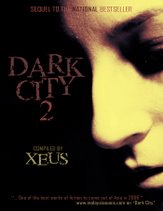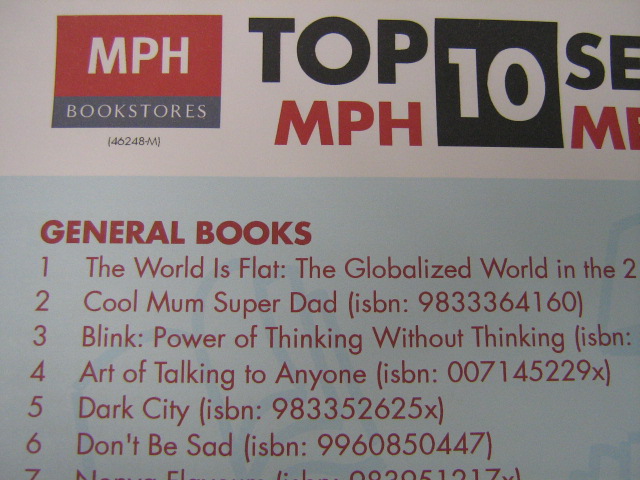Does grammar matter?
Just last week, I was meeting with a US-based publishing rep, who flipped through my book and said, "Uh oh."
"What?" I said in trepidation.
"Your English can be quite a problem." He pointed at a few passages. "Some of this is quite literary, you see, and in selling popular fiction, your grammar might work against you."
Oh. I didn't know grammar could ever work against you.
But apparently, sometimes it does.
"You see," said the rep, who is a 6' 2" blond, blue-eyed hunk by the way, "they prefer to segregate literary books to literary publishers and popular fiction to pulp fiction publishers and so on. You have a mixture of these in your stories. That's a problem."
Oh.
I had never been told my English was a problem before. I only considered 2 stories in Dark City to be semi-literary i.e: 'Monster' and "The Scarlet Woman.' The rest were, well, pulp fiction.
In 'On Writing', Stephen King's book on, well, writing, the cardinal rule of any popular fiction writer is to tell the story without any fanfare.
"Write 'he said'," says King. "Don't write 'he said, desperately.' Just tell the story with minimal words and fuss possible."
And apparently, someone else was complaining about my grammar. The Malay translator was having problems translating Dark City into Malay.
"We're going to lose some of the gist of the original book," my publisher warned.
"I'm OK with that," I said, desperately. "You'll have to snip out the sex bits anyway and sanitize the book for the Malay version anyway."
But in writing for newspapers and magazines, grammar does matter a lot in fact. And if you're an unknown author, just to get the publisher to read your book is an achievement that goes with good grammar.
The moral of the story?
If you're writing literary fiction - let your grammar flow. (It would also help if it was a great story, like Margaret Atwood's 'The Blind Assassin.')
If you're writing pulp fiction - don't embellish it too much. Just go with the basics. The story matters most of all. Your grammar doesn't.



6 comments:
Bah, the Malay world of writing has its share of hanky panky stories as well, some downright filthy and disgusting.
Anyways, I don't get it... the Malay translator complained of your grammar? Why? Because it was too hard to translate? I'm not a professional (nor an mateur one) but shouldn't a translator translate the spirit of the story, and not just the sentences verbatim?
Talking about grammar though... I've always held the opinion that a writer must have very good grammar, so he will know what rules he is breaking when he is writing ;)
You know, I told Lydia the same thing! We think alike, Argu!
Ted, sigh....the publisher complained my English was 'too good' to be translated verbatim to Malay words. I thought it was just normal, not 'too good' or anything. Then again, one can always tone down the Malay version. But I definitely want a Malay version - they sell by the tens of thousands, you know. Less competition.
Argu, Xeus : Thanks for the title suggestion. Will definitely ask my editor to consider it.
This is quite an unusual conundrum. Literary English vs Pulp-fiction English. What's the difference? The former has lots of layered meanings to the sentences whereas the latter is just telling it like it is?
"If you're writing literary fiction - let your grammar flow. (It would also help if it was a great story, like Margaret Atwood's 'The Blind Assassin.')
If you're writing pulp fiction - don't embellish it too much. Just go with the basics. The story matters most of all. Your grammar doesn't."
Xeus, I think what you wrote as grammar above should be language. Grammar always matters, whether in literary, commercial or nonfiction works. (My grammar tends to be rather holey at times).
You are so right, Lydia! That's what I get for never having learnt the rudiments of English!
I can't tell a pronoun from an adverb, you know.
the blind assassin.. i love that book :)..
Post a Comment